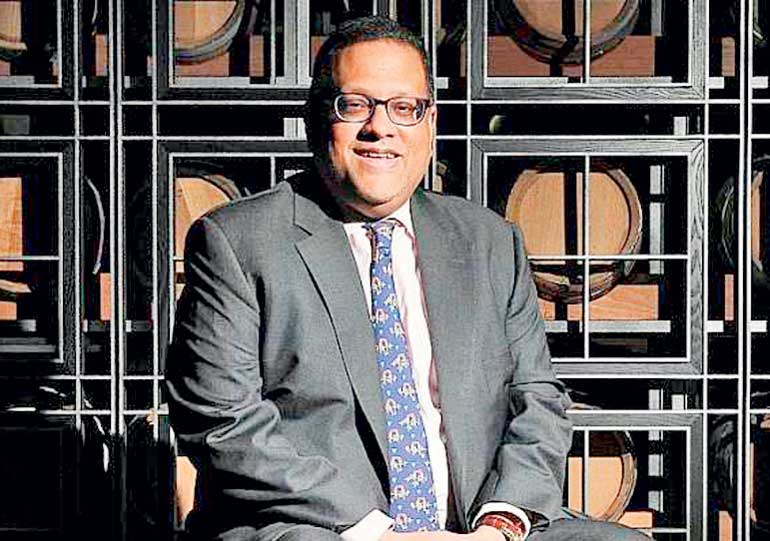Tuesday Feb 17, 2026
Tuesday Feb 17, 2026
Thursday, 10 September 2015 00:00 - - {{hitsCtrl.values.hits}}
 Central Bank of Sri Lanka governor Arjuna Mahendran, who is a Singapore citizen, said he has his work cut out for him, amid the current international currency volatility – Photo: The Straits Times
Central Bank of Sri Lanka governor Arjuna Mahendran, who is a Singapore citizen, said he has his work cut out for him, amid the current international currency volatility – Photo: The Straits Times
The Central Bank has vowed to continue to help improve the country’s tax system and liberalise its monetary policies, despite economic and political challenges.
Central Bank of Sri Lanka (CBSL) Governor Arjuna Mahendran told The Straits Times last week that he has his work cut out for him, particularly as he took up the position only in January.
“International currency volatility is very damaging to a lot of emerging economies and commodity exporters like Sri Lanka. Managing that impact is going to be a challenge,” said Mahendran, who was a private banker at HSBC and remains a Singapore citizen.
“Domestically, revenue is the key thing that we need to fix. A lot of work has to be done, to reorient the way taxes are collected in Sri Lanka - simplifying them, making it easier for taxpayers to pay their taxes. In fact, the Inland Revenue Authority of Singapore is involved in a technical assistance project with Sri Lanka in the Revenue Department.”
Mahendran, who was in transit in Singapore last week following an International Monetary Fund meeting for central bankers in Jakarta, was appointed to head the CBSL amid trying times.
The country is emerging from a two-decades-long civil war with Tamil Tigers insurgents that officially ended in 2009. Its economy grew 3.1% in 2013, 4.3% last year and 6% in the first quarter of this year.
But the country has also built up a sizeable debt because of infrastructure development. China, its main lender, has extended up to $10 billion (S$14.3 billion) in funding since 2009, Mahendran said, adding that refinancing on this front is another priority for him.
Yet a more immediate focus is to stabilise Sri Lanka’s currency market amid moves to liberalise its exchange rate in a bid to attract foreign capital, he noted.
Last Friday, the CBSL announced that it will cease quoting a reference rate for the Sri Lanka rupee, allowing market forces to determine the exchange rate. Following the announcement, the currency slipped over 3% to 139 against the United States dollar, a record low.
Mahendran’s decision marked the latest regional currency devaluation triggered by a similar move by China last month. But divergent monetary policies between the US and Europe, and highly uncertain global growth are not making the adjustments easy, he added.
“Juggling all this is a challenge... Growth in the US will hopefully pick up further, but Europe and Japan remain a big question mark. That is the conundrum for us – to manage external volatilities while preserving the situation in the local markets,” he said.
At the same time, he is aware that his policies need to manoeuvre the political landscape in Sri Lanka, following last month’s elections when the ruling United National Party was unable to form a clear majority.
“What this means for the CBSL is that we have to adapt ourselves to the push and pull of consensus building... Decision-making will be a little more different compared with the past when we had a powerful presidency.”
Mahendran added that he hopes Singapore will remain a staunch ally of Sri Lanka.
He said: “All countries are seeking investment, and the differentiating factor is who we partner with. The creation of industrial and service sector infrastructure is where Singapore is world-class. If Singapore were to come to Sri Lanka and help us develop industrial parks, global investors will have the confidence to follow.”